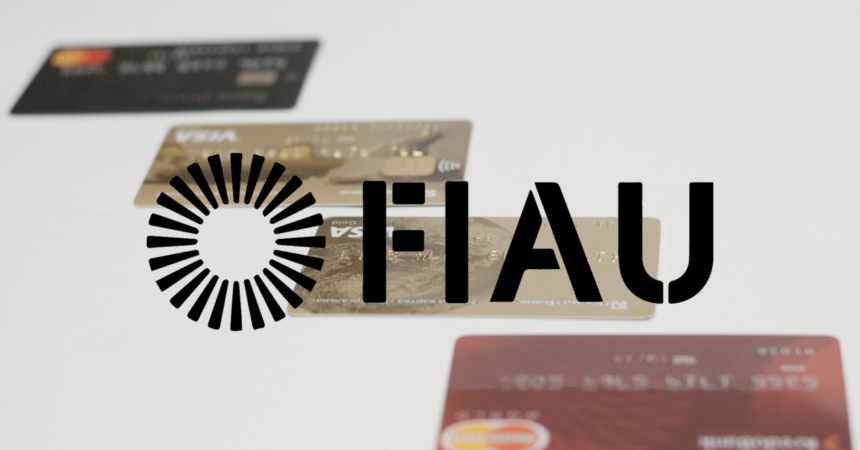The constitutional jurisdiction of the civil court ruled against the Financial Intelligence Analysis Unit (FIAU) on Tuesday in a case raised by premium credit card company Insignia Cards Ltd against fines imposed by the FIAU.
Insignia raised a case which insisted that the way the FIAU is conducting its business and the provisions of the Anti-Money Laundering Act it was implementing went against its constitutional and human rights.
It is the second landmark case in as many months that found the current laws and regulations governing the FIAU’s processes breach the right to a fair hearing as protected by the Constitution of Malta.
In November 2020, the FIAU fined Insignia €373,670 for failing to file a suspicious transaction report about a Russian client who was a politically exposed person with alleged ties to organised crime. The financial regulator had also claimed that Insignia’s source of wealth report on the same customer was not reliable.
Disgraced former Economy Minister Chris Cardona joined Insignia Cards Ltd shortly after resigning from his ministerial post in April 2020.
Apart from this week’s constitutional case that was presided over by Mr Justice Lawrence Mintoff, Insignia had also filed an appeal to the FIAU’s decision, which is being heard before the Court of Appeal.
The company requested that the constitutional case be concluded before the appeal is heard.
In December 2021, The Shift reported on how the constitutional court had ruled against a July 2021 decision by Judge Mintoff to proceed with the appeal hearing despite the constitutional case having not yet been concluded at the time.
In its constitutional case, Insignia argued that its fundamental human rights were breached due to an absence of a fair hearing and claimed the FIAU was acting as judge, jury, and executioner.
The company claimed that since it was being accused of criminal acts by the FIAU, these should be heard by the independent court rather than the financial regulator or another authority as would be allowable in other civil cases.
In its decision, the court said that the FIAU’s actions would be comparable to “the police having the power to convict people without a judiciary process”.
The court also ruled that the law setting up the FIAU does not provide a sufficient and constitutional appeal process but instead improperly relies on the judicial courts for individual appeals.
Now that the constitutional case has been decided, the appeals court can proceed with hearing Insignia’s appeal against the FIAU’s original decision. The premium credit card company is now armed with a constitutional court case confirming its fundamental rights have been breached, placing the FIAU in a precarious position.
In 2021, legal sources told The Shift that an FIAU breach of constitutional rights would be a major setback to the anti-money laundering unit given that all its actions could be declared unconstitutional and a change in the law could be required.
Data tabled by Finance Minister Clyde Caruana in response to a 15 May parliamentary question tabled by Opposition MP Chris Said shows that the FIAU is subject to 17 other court cases alleging breaches of constitutional rights under Article 39(1) of the Maltese Constitution, the same article cited by Insignia.
On 30 March, the Constitutional Court presided over by Madam Justice Audrey Demicoli declared the FIAU’s compliance process that leads to the imposition of administrative fines to be null and without effect.
Ordering a copy of the judgement to be sent to parliament, Judge Demicoli also declared that part of the Prevention of Money Laundering and Funding of Terrorism Regulations, and the rules on the imposition of fines, as null and anti-constitutional.
Annulling a fine of over €400,000 levied against a financial services operator, Phoenix Payments Limited, the court ruled that the imposition of such fines by the FIAU has no validity under the Constitution of Malta since the Unit cannot act as judge, jury and executioner.
Insignia Cards Ltd is a Valletta-based company set up in 2011 which offers its high-net-worth customers credit card services. It is owned by a parent company based in Cyprus which bears the same name and whose directors are George Kesidy and Nada Tucakov.














Will disgraced Alfred Zammit resign now? Or is he still issuing letters to Pilatus Bank clearing them from any breaches?
in a conference held last week on Financial Crime, FIAU’s Alfred Zammit took the opportunity to hit at the courts for diminishing the FIAU’s approach at applying the law. he also indirectly hit out at the police and the AG’s office. what he failed to mention is about the FIAU’s inaction on scandals which hit the news for the last decade and which his office seems super reluctant to act upon.
it is very rich from the FIAU to hit out at the courts, being the only means of protection any person and/or entity can afford against a public office that has proven to act hard on the weak and weak on the strong.